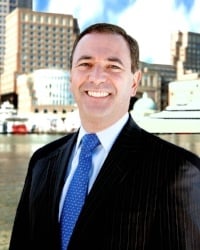By David Calusdian, Executive Vice President & Partner
As bad as things look for Lance Armstrong amidst the doping scandal that has cost him seven Tour De France titles and millions in endorsement deals, he has an opportunity that few in need of reputation management ever have. This opportunity for reputation redemption comes not from his status as the most successful athlete his sport has ever seen, but as the founder of LiveStrong, an organization that provides support for people fighting cancer around the world. It is much easier to forgive athletes like Lance for “on-the-field” discretions when they also are known for altruistic works off the field.
Armstrong, however, like anyone in the middle of a crisis, needs to be realistic about what type of a reputation rescue is even possible. For example, can the career be saved? Could there be endorsement deals in the future? Can the hearts and minds of the general public be won over again? In Armstrong’s case, the cycling career is over, and so too are the endorsements. But his ability to regain respect as a leader in the cancer community and to take back the LiveStrong chairmanship he recently resigned is entirely possible.
To do that he needs to follow Sharon Merrill’s “Four Steps for Reputation Rescue”:
Admit the indiscretion. This would appear to be easy for Armstrong, given the preponderance of evidence against him and the fact that few still believe in his innocence anyway. However, simply stating the obvious can sometimes trigger civil or criminal legal complications. In Armstrong’s case an admission would provide powerful ammunition to those suing him for a return of monetary compensation as a result of his Tour de France wins. And then there is the fact that Armstrong already has testified under oath that he did not dope. Those issues aside, the public needs to hear an admission in order to move on. Take for example, the divergent paths of Yankee teammates Andy Pettitte and Roger Clemens, who both faced performance enhancing drug (PED) allegations. Pettitte admitted his indiscretion and was forgiven quickly – with his reputation and legacy largely intact. Clemens, who still denies the allegations, is seen by the public in the same cheating & lying category as Barry Bonds and well, Lance Armstrong (despite being found non-guilty in court about lying to Congress about taking PEDs).
Express remorse. Admittingtheindiscretion isn’t enough. Armstrong needs to appear legitimately sorry. Former Red Sox pitcher Josh Beckett might still be pitching in Boston had he been even slightly remorseful for his on- and off-field attitude after the “chicken and beer” and “golf outing” controversies of the past few seasons. Armstrong needs to avoid the “everyone was doing it” excuse and just apologize.
Emphasize the positive. Remindingpeople of the goodyou have done can be a positive, but only if done humbly. This is not the time for Armstrong to engage in self-congratulatory pats on the back. For example, by apologizing to the cancer community for the harm done to the LiveStrong organization and by promising to continue his cancer-fighting crusade, Armstrong would remind people of the good that he has done off the bike and away from PEDs. From a messaging standpoint, this sets the stage for the next step in the Reputation Rescue process.
Make it right. This is the most important component of the four steps. It also takes the most time. No reputation is going to be fixed in one press conference. And one highly public exhibition of “altruism” is not acceptable. The public needs to see over time that the guilty party is indeed remorseful, and that they have changed for the better. Armstrong has an opportunity to regain credibility in the cancer community, and that’s where he should focus his positive efforts. He needs to slowly immerse himself back into LiveStrong at the ground level, making positive change for cancer patients. Eventually, maybe Armstrong can convince people that LiveStrong and the ubiquitous yellow wristbands were never marketing gimmicks designed to build his public persona, but a genuine effort to help those in need.
Right now, the situation does not look good for Lance Armstrong. But while his reputation as the preeminent cyclist of his generation has been decimated, he has a great opportunity to regain credibility as a respected leader in the cancer community. If he follows the Four Steps for Reputation Rescue, those who see Armstrong only as a lying cheater eventually will be vastly outnumbered by those who appreciate his positive contributions.
David Calusdian, an executive vice president and partner at Sharon Merrill, oversees the implementation of investor relations programs, coaches senior executives in presentation skills and provides strategic counsel to clients on numerous communications issues such as corporate disclosure, proxy proposals, shareholder activism, crisis communications, IR social media plans and earnings guidance.
Subscribe to our weekly email: Investor Relations Around the Web














